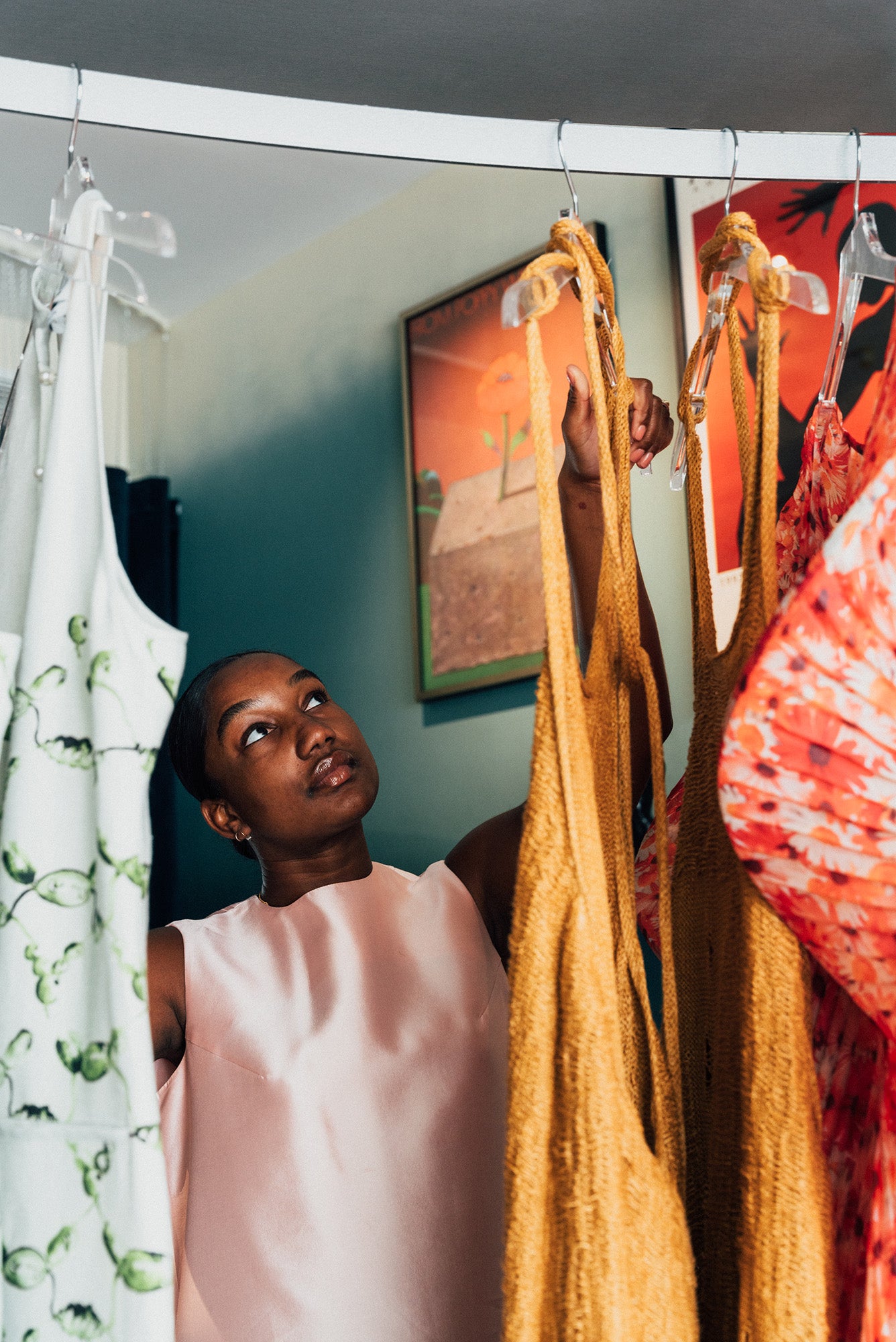
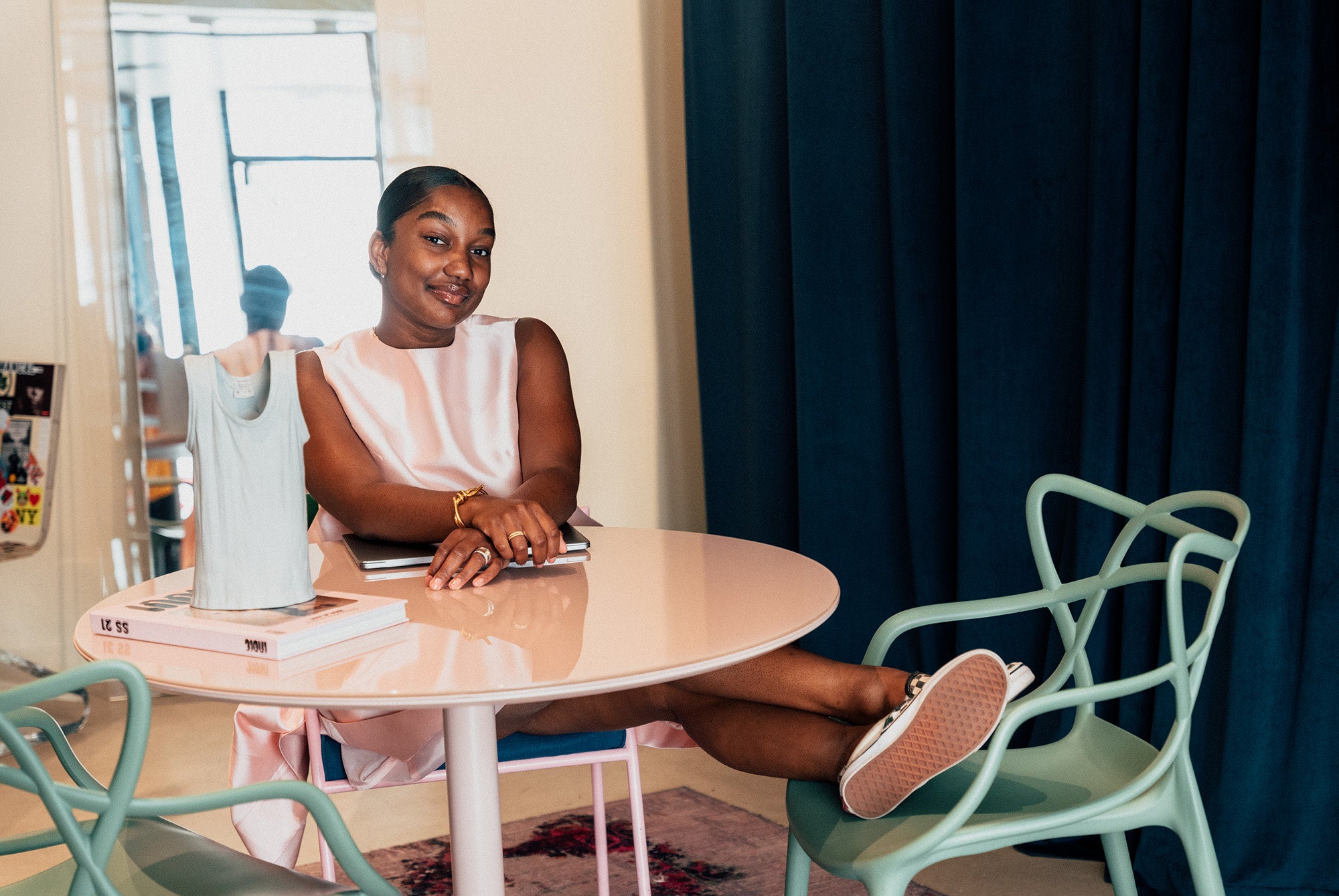
The entrepreneur and owner of t.a. on opening a store in the middle of a pandemic, finding confidence through clothing, and dispensary designs.
AS TOLD TO GOSSAMER
I love being surrounded by a community and by people, which is most likely why I opened a brick and mortar store and not just an e-commerce platform.
I basically live at t.a. It’s our mission and our goal to bring contemporary designers to the forefront of retail. That’s something that I had yet to see on a grand scale, especially in terms of a Black-owned business. I wanted to create a space that was not only inviting in terms of who works here, but also in the clothing that we provide, and the designers and the artists that we hold space for.

Before opening the store, I did social media forFood & Wine, Hypebeast, and Atlantic Records, where I was consulting on the side for one of their up-and-coming artists. Then I went into influencer management at a fashion PR firm for eight months, which was as treacherous as it was fun. And I just got my master’s in brand management from NYU. I like to learn, but I can’t always spell, which is hilarious.
Knowledge is so important—not only about what you’re smoking, but what it’ll do to you, how you ingest it, will you feel like.
My parents know everything so I’ll tell you: I smoked a lot in college. But it all went south my senior year, because I didn’t have enough knowledge. I didn’t know anything. I was smoking whatever I could get—both good and bad. And my body ended up just rejecting it. I got hives from the top of my head to my feet every single time. It was incredibly disheartening because you want to be able to not only participate, but to get what you need to get from weed. I eventually went to a doctor and learned that the THC level was too high for me to tolerate on top of the tobacco that I was ingesting. I was young and dumb.
Knowledge is so important—not only about what you’re smoking, but what it’ll do to you, how you ingest it, will you feel like. I don’t think there’s enough education out there. Actually, my capstone project for my master’s program was modeling out a dispensary, which I would love to eventually open. Something in New York or L.A. that has a similar aesthetic to t.a.
30% of our revenue would be donated to helping men and women after they’ve been released from prison for low-possession crimes, and partnering specifically with pro bono lawyers in that city to help them get released. We’d also give them stipends to help with their families, to help them live, eat, get a shower. To help them get housing so that they can then get the life that they deserve. That’s what I want to offer with a dispensary some day. And I want to be able to teach people and use my story as an example. You can’t just put everything in your body. You cannot do that.
My mother has amazing style. Cherry red is her favorite color. I would take in everything she wore, whether it was a necklace, a ring, her lipstick, or her bag. Fashion is something I always gravitated towards. My parents allowed my siblings and I to wear whatever we want and be whoever we wanted to be—even if it didn’t match, even if it didn’t make sense. That’s how I expressed myself because I wasn’t always this talkative. I was like, Let me show who I am through what I’m wearing, and they can figure it out. That was my vibe. That’s the feeling that I want to give to others through the store. You can be quiet, but then wear something that allows you to become this loud, confident person.
There are so many brands I carry now that I’ve loved for years, and the only way to get them would be to buy directly or through another retailer in another continent. Pieces would arrive four weeks later and wouldn’t fit because I didn’t know my size and because I couldn’t touch it and try it on. That was a big driver for me.
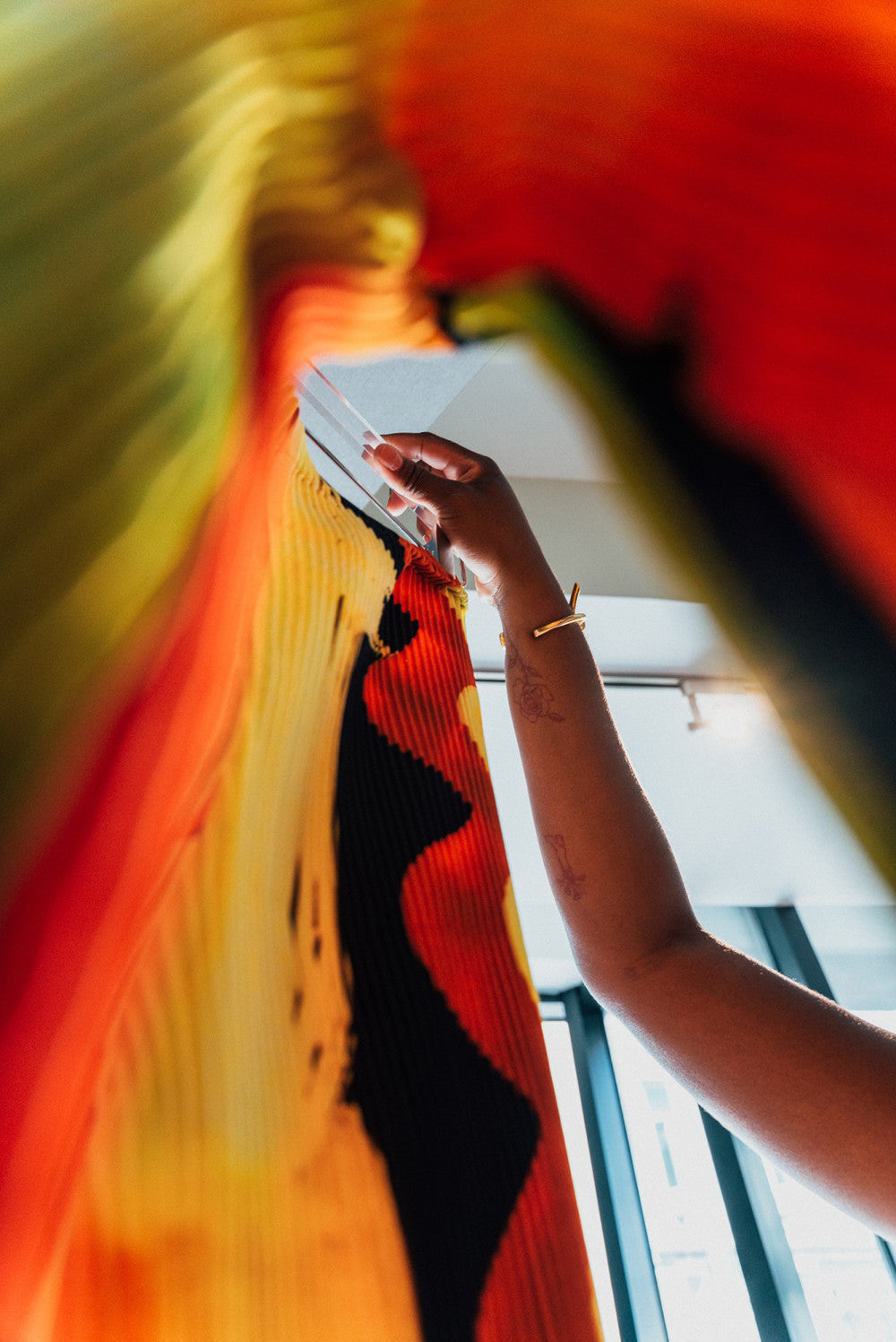
Growing up, I wanted to be a fashion buyer so badly, which is why I studied retail management in undergrad. But the program was heavily numbers-driven to the point where it took a lot of the creativity out of it. It’s all about what shirt is selling the best, in thissize, in this color, in this stitching. That’s what they taught us. I thought I’d work for a Net-a-Porter or a Moda Operandi—or even a Macy’s, honestly. But when I graduated, there were no programs, jobs, or internships that were available—especially for an African-American woman.
I got really discouraged. I graduated thinking I’d be photographed going to Paris fashion shows, I thought that would be my life. But those opportunities didn’t exist for me at the time. I said, “Eff it,” and decided that if it was for me, it would find me. Instead, I looked for something that would allow me to live in the city—it didn’t matter what it was. So I got a job selling national park guides.
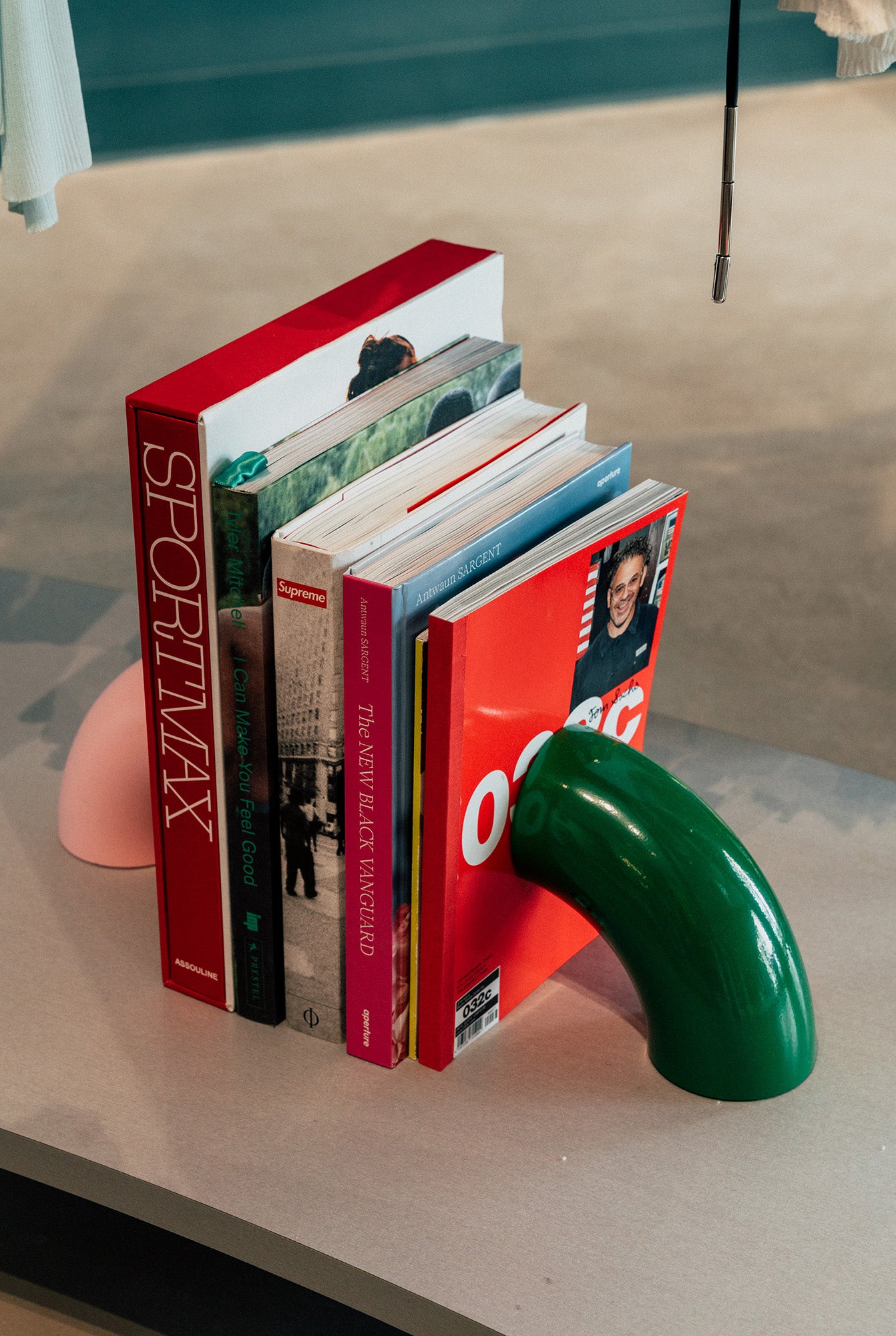
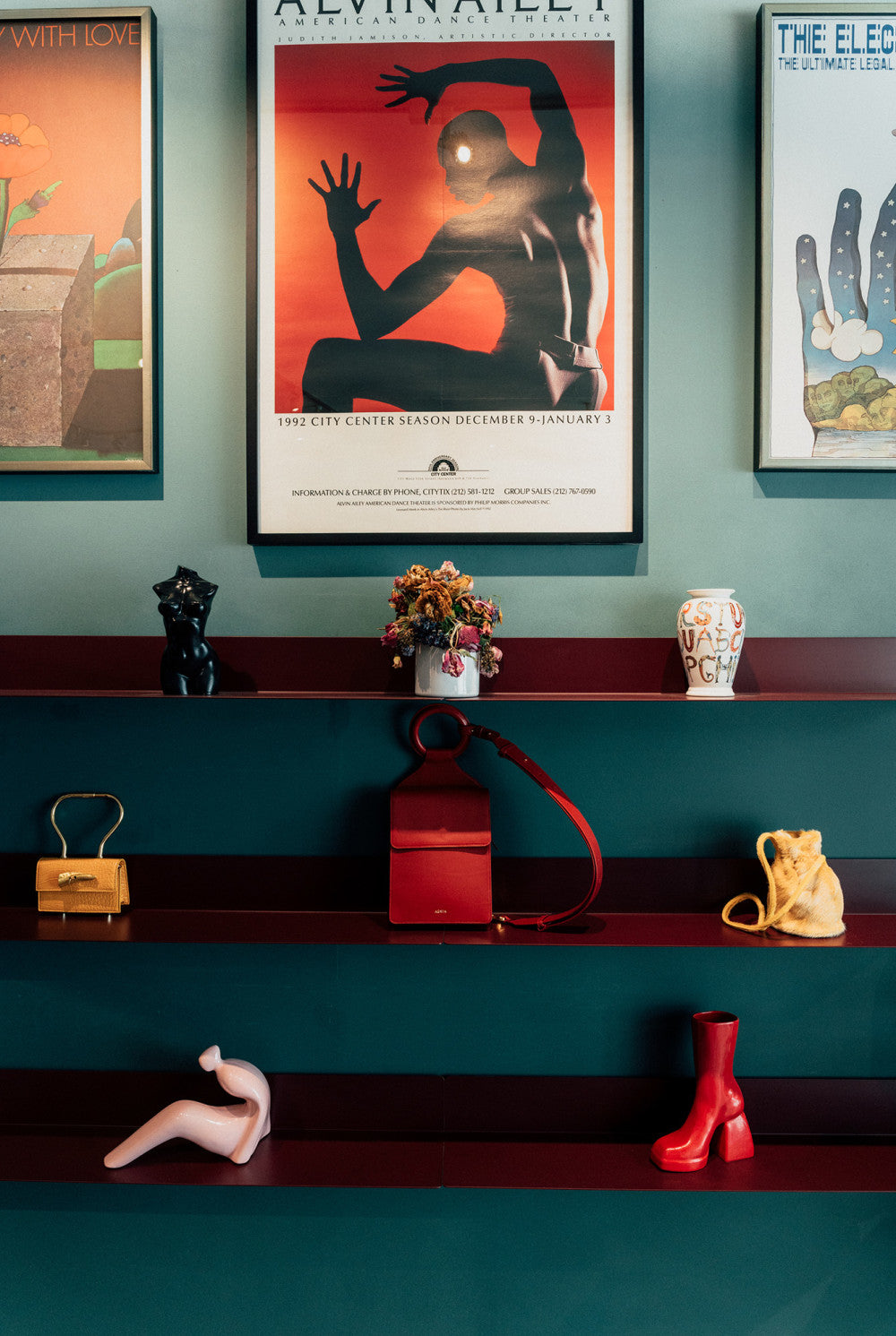
When I first started working in the city, Opening Ceremony was it. They had two locations, one in SoHo and then one that was right next to Penn Station. So I would take the longest walk home from work, which was in Union Square. I’d go all the way up to 29th Street just so that I could “accidentally” stop by. The way they curated the store was incredible. I was in there a few years ago when I had this realization: I can do this. There’s no reason why I cannot do this. There’s absolutely no reason why I cannot have a store. But I wasn’t even working in the industry at the time, so it seemed impossible and crazy.
But once I said that to myself, I started pulling images of stores and editorials I loved. I compiled a list of brands, and began building the business plan. There are so many nitty-gritty steps that nobody talks about. No one teaches you how to start your own business, not even in school, which still irritates me. I’m paying all this money and I don’t even know how to start my own business. That’s ridiculous.
Even if I had years of experience, there’d still be things I do not know how to do. But not knowing something is never a reason to not do it.
So I googled business plans and templates and tried to figure out where to start. I found this place called SCORE. It’s a resource center where you can go and have your business plan or whatever you’re working on reviewed by a retired professional in that industry. I remember bringing my plan to the mentor I was working with. And he was just like, “Okay, cool. So when are you going to start this?” That encouragement from a stranger, plus my determination, is what made this happen. But there are still so many things I don’t know.
Even if I had years of experience, there’d still be things I do not know how to do. But not knowing something is never a reason to not do it. I’m not sure why I feel that way. Probably because of my faith, honestly. Like, if it’s for me, it’s going to work out, and if it’s not, then God’s going to shut that door and it’s not going to work out. Being an entrepreneur is—I mean, it’s crazy, right? Why does anyone decide to do this? It’s psychopathic. But you say to yourself, I can do this. If anyone’s going to be able to do this, it’s going to be me. And I’m going to do it well. And I’m going to laugh about it after even though I was crying every day leading up to it.
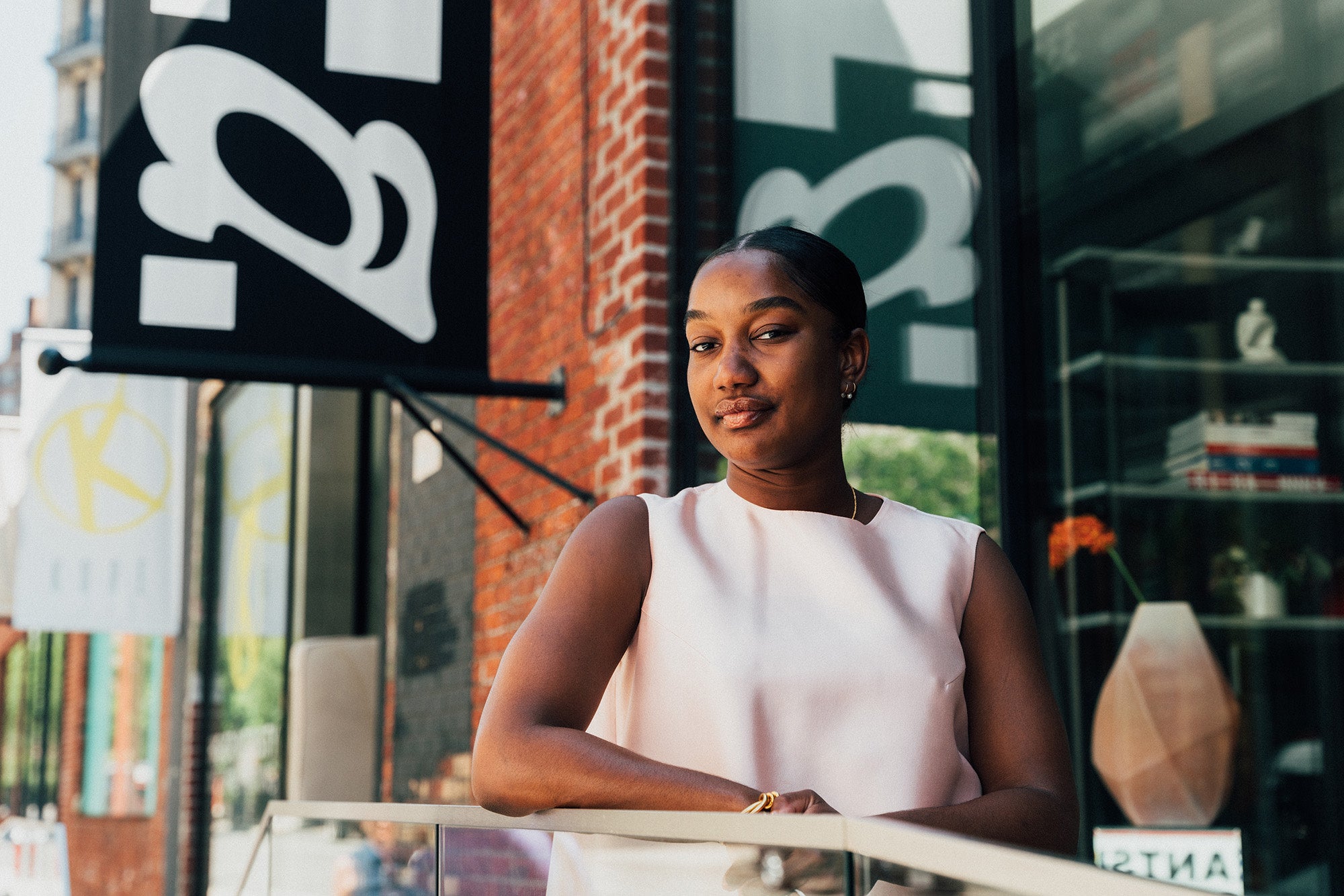
My father always told me, “Move with integrity. Act with integrity. Tell the truth.”
The eight months I spent at that PR firm were crazy. I learned a lot, but the PR world is a different beast that I wouldn’t wish upon anybody, not even my worst enemy. Eventually I was like, I don’t have to put up with this. I can go and work for myself. I left a meeting, gave my notice, and the next week I signed the lease on this space. Two weeks after that, I was on a flight to Paris and Milan to do the buy. No one knew who I was. I sent 40 cold emails to showrooms. There was one woman I knew who had worked as a buyer for a small store and she told me all the showrooms I should know, because those are hard to find, too. She didn’t give me the key, but she was like, “Here’s the box, figure out a way to open it.”
I had no idea what I was doing. I had to learn so much on the fly. I remember reading somewhere that if they ask you what other brands you have confirmed, just lie—they can’t confirm it because they’re competitors. When I showed up at one of my first appointments and he asked who else I had confirmed, I had this little angel on one shoulder and a devil on the other. The devil was like, “Lie.” And then my dad popped into my head. My father always told me, “Move with integrity. Act with integrity. Tell the truth.” And so I was honest. I said, “I don’t have anyone confirmed, this is one of my first appointments. Are you going to show me around or not?” The showroom manager was like, “I love your transparency, who do you want to see?” I confirmed three brands that day. Everything built from there.
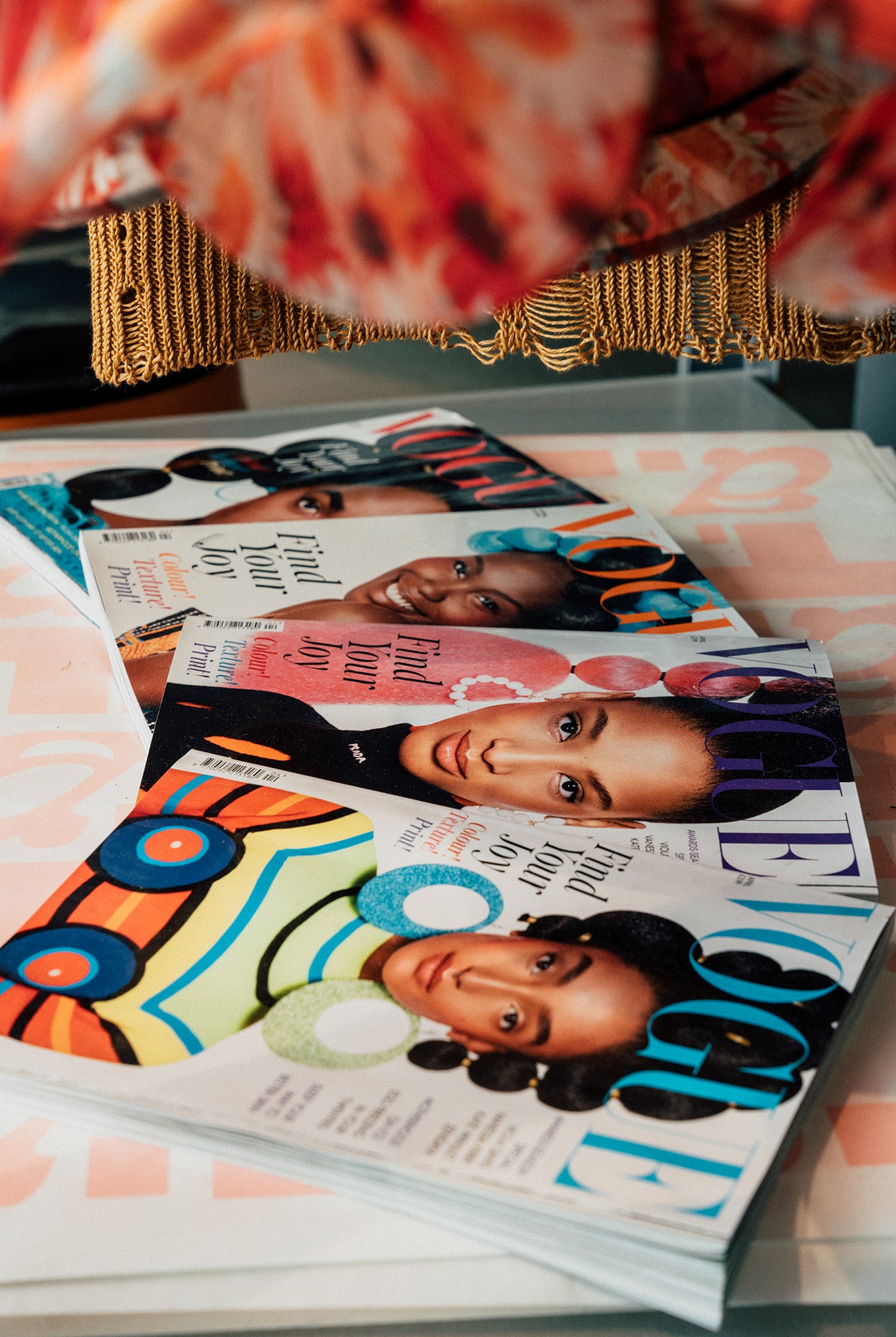
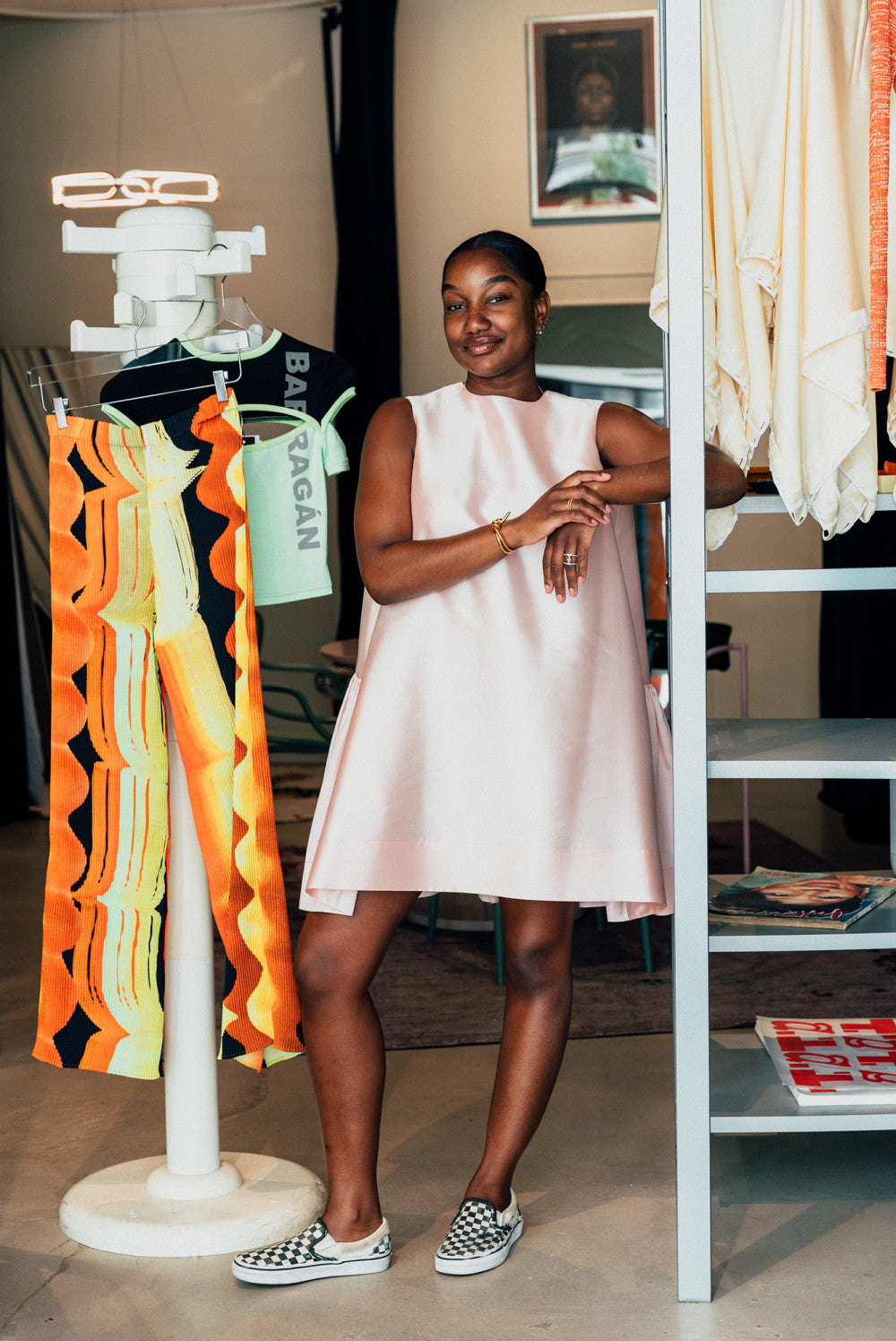
People want to shop. The world could be burning, and somebody will be like, “Would you let me go to that store real quick so I can pick up that last shirt?”
I was originally going to open in February during New York Fashion Week. Then construction delayed me a month. I started getting emails about COVID. Three brands had reached out to say that they were delayed because their production houses had shut down. And then the whole world shut down. I was so upset. I had all this inventory. I had a whole space. A lease that I had to start paying rent on. So I launched our website, where we would drop 10 items a week throughout COVID.
I initially didn’t want to have a website—I wanted to be really mysterious. But that wasn’t going to work because of the pandemic. So I used the experience I had from working in social media and influencer management. I reached out to some people I knew and loved and asked them to post about it. I did Instagram Lives. I started a newsletter. And then, of course, the #SupportBlackBusiness hashtag dropped because of George Floyd.
That was a tragedy. We were all mourning him, and mourning those we’ve lost who have been brutally killed by the police. But when that occurred, there was a surge of support. Genuine or not, the support was there. People wanted to talk to me, people wanted to learn about me, people wanted to shop for clothing. I went from zero to a thousand. Kourtney Kardashian put me on Poosh, tagged the store, tagged me. That blew up. Karlie Kloss, that blew up.
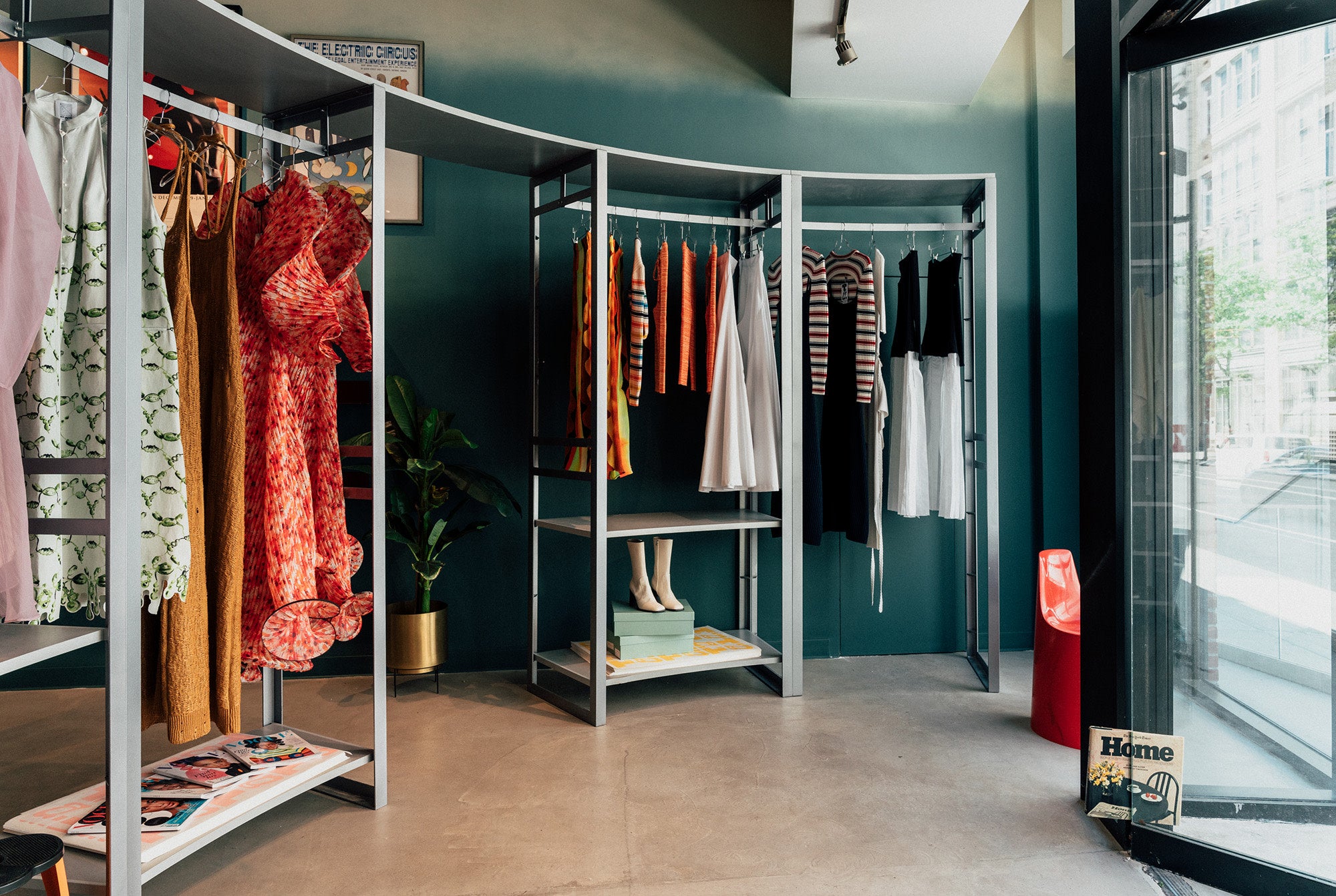
We opened our doors on July 9th. It was insane. Everything was flying off the shelves, people were coming in with screenshots, “Do you have this? Do you have that?”
People want to shop. The world could be burning, and somebody will be like, “Would you let me go to that store real quick so I can pick up that last shirt?” It’s not only that we were Black-owned, but that we had a lot of contemporary designers that you cannot get anywhere else.
We have brands from London, Paris, Milan, Toulouse, L.A., New York. t.a. is for people who are women-identifying, looking for something new, and looking for something fun. We’re not here to create your style, we’re here to add to it. We’re for people who know what they like, know what they want to wear, and know what works with what they already have. It’s really intentional. We carry a lot of one-of-a-kind pieces. I put my heart into every single season. That’s how I operate.
One thing that I saw a lot when the #SupportBlackBusiness campaign happened was that people unfortunately associate anything Black-owned with being cheap. And that’s not life. That’s actually not true for any of the Black business owners that I know. So I got a lot of DMs—and I responded to every single one—that were like, “Hey, why is this top $500?”
Let's start there. Let’s go into how this clothing is not cheap to make, especially when you’re working with small contemporary designers.
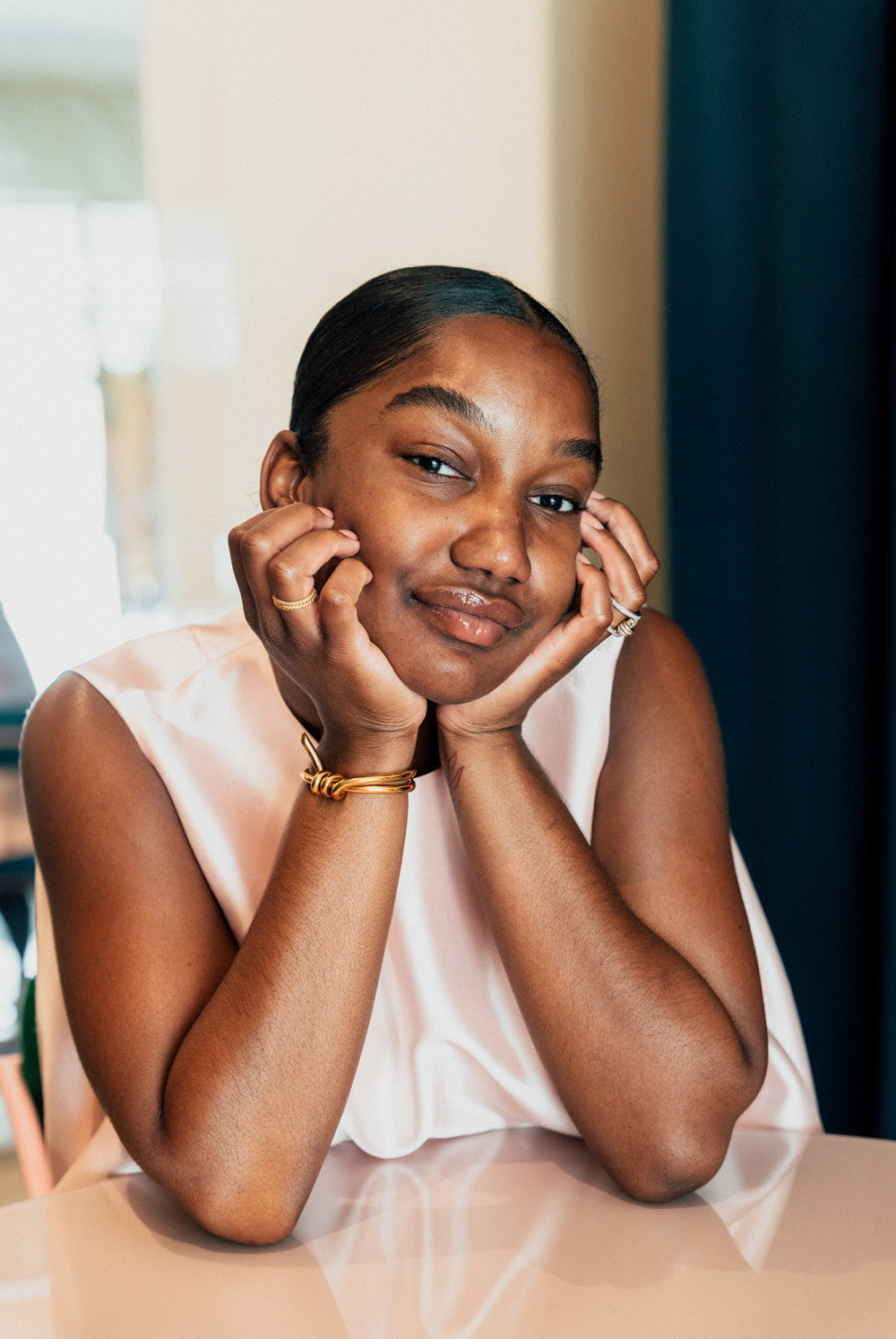
They cannot mass produce. Things are hand-knit and hand-sewn by the designers themselves. Yes, some stuff is expensive, and yes, we all know that it might not cost that much to make it. But at the same time, it’s part of a system. I’m not charging these prices so that I can go out for a fancy dinner. When I work with a contemporary designer, a Black designer, a designer from Peru or Tblisi, Georgia, I’m supporting them. It’s a cycle. When it comes to having a store, especially a small boutique, whatever is bought here goes to cover my rent, the photo shoots we do, to pay for our air conditioning.
We just started crowdfunding through IFundWomen. The funds are going toward expanding my team and opening a pop up in L.A. in two years. About 75% of our online sales come from women in L.A. Eventually, I would love to consult for other major retailers and become the conduit between them and contemporary designers. And, of course, open that dispensary. But my biggest goal is just to be happy. And I’m very happy right now. So if I can maintain that, even if I don’t get anything else I just said, then I’m cool.
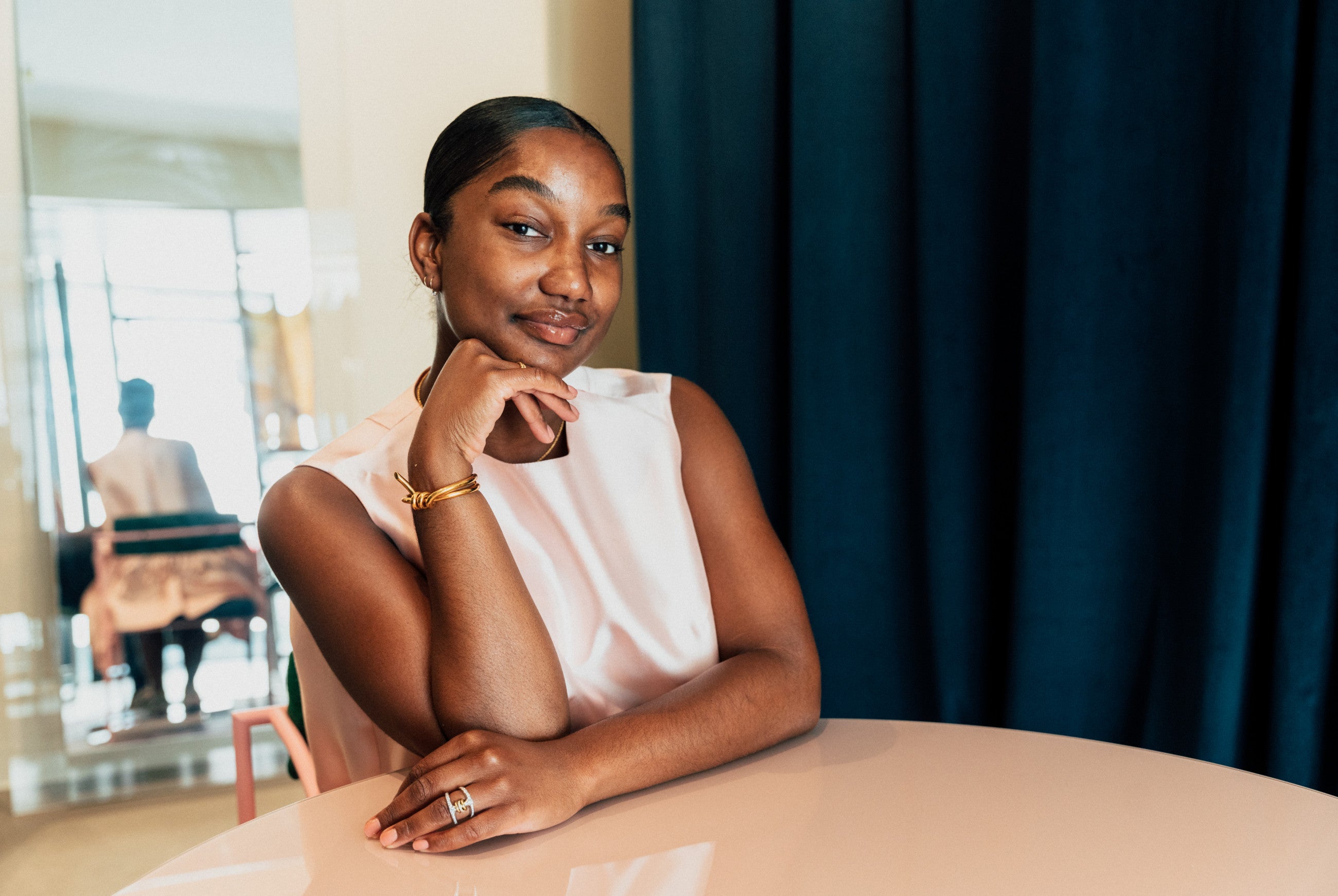
This interview has been edited and condensed for clarity.Telsha Anderson photographed by Meghan Marin at her store in New York. If you like this Conversation, please feel free to share it with friends or enemies. Subscribe to our newsletter here.